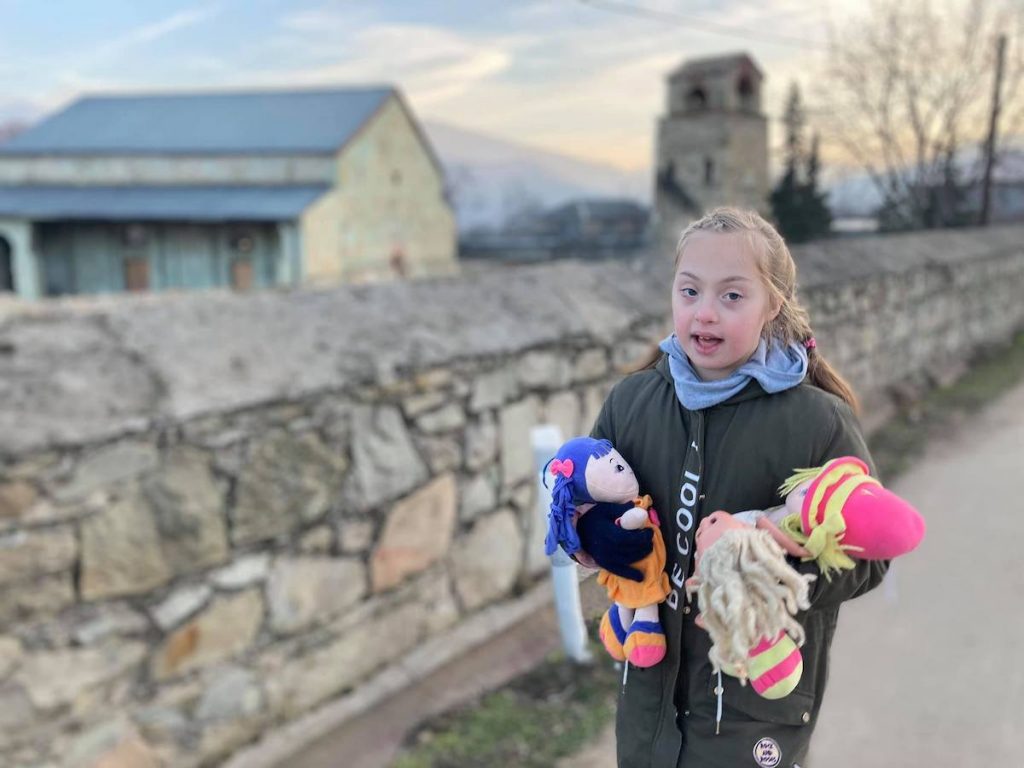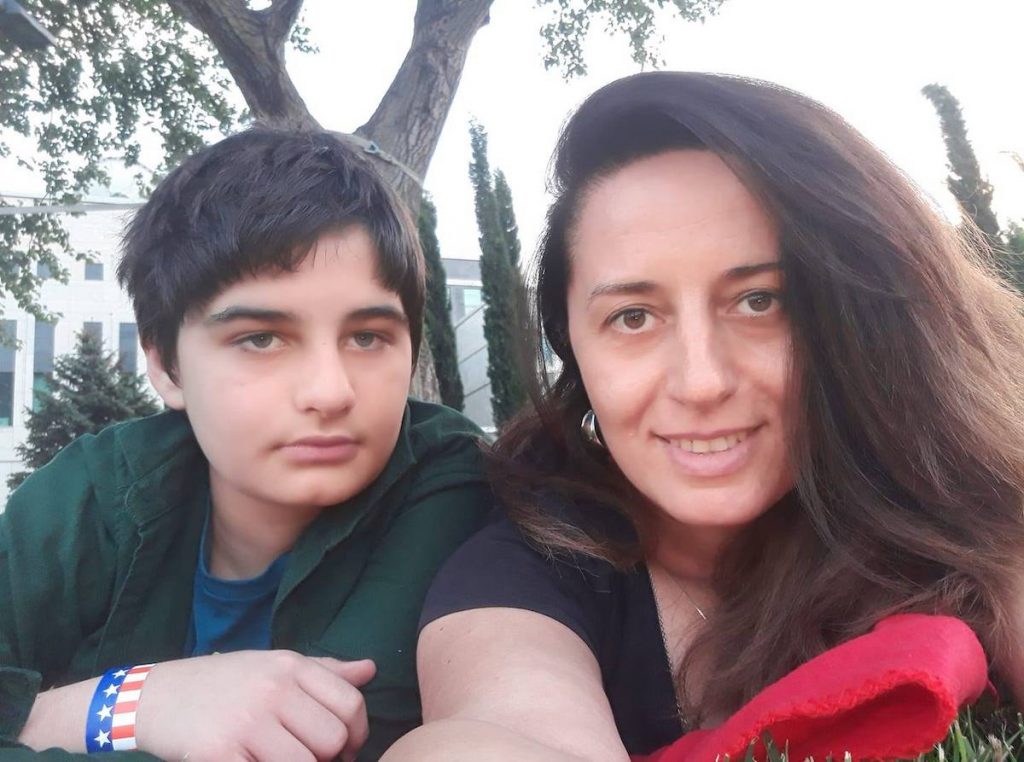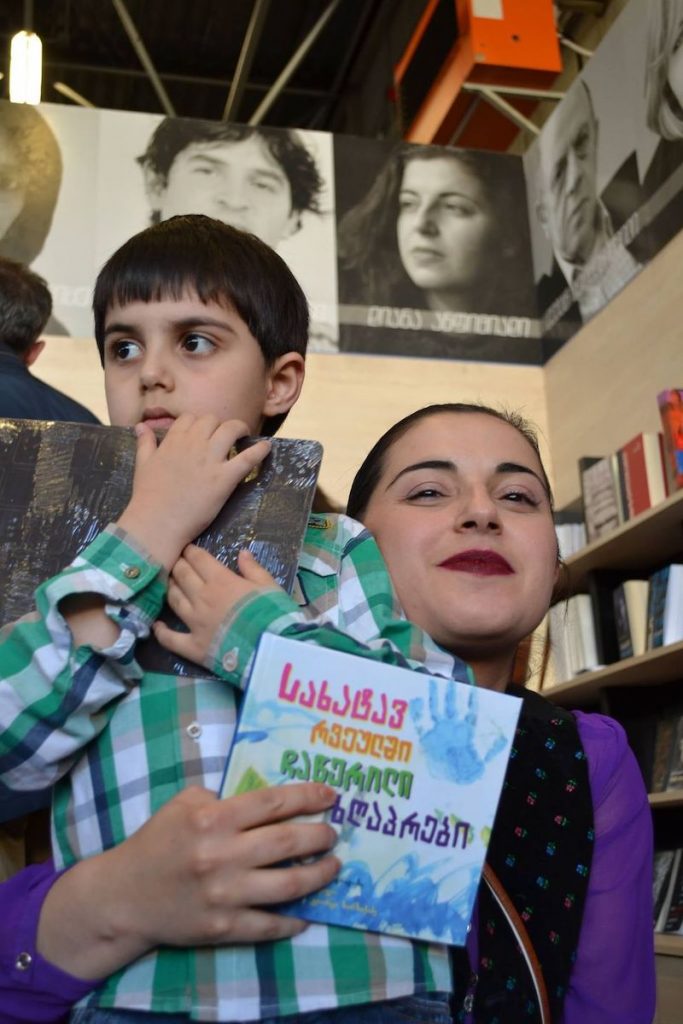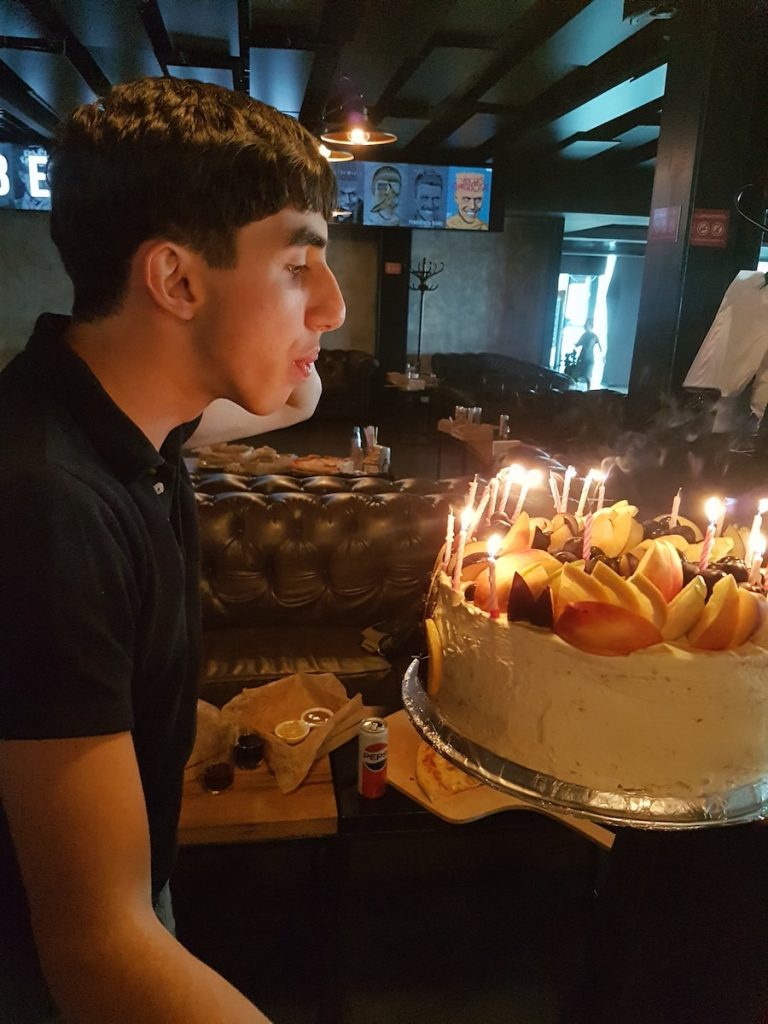How 4 children with special needs are making it through the pandemic in Georgia
Children with Down Syndrome and Autism in Georgia
The first institutions in Georgia to stop working during the pandemic and the longest closed have been schools, kindergartens and other children’s educational institutions.
Rehabilitation and therapy centers have also been closed, leaving children with disabilities and special needs and their parents without vital assistance.
“The children were literally locked at home. And while they got used to a different regime, their behavior changed a lot. It was also difficult for the parents, because they had to work and care for a disabled child at the same time. And such care requires a lot of effort and resources,” says Keti Melikadze, UNICEF Social Policy and Economics Specialist.
The Public Defender of Georgia also stated that the government’s anti-crisis plan did not take into account the needs of people with disabilities, including children, at all. Only children with severe disabilities can count on help.
And children with Down Syndrome or autism spectrum disorder, whose condition was assessed as moderate, were left without any help.
During this period, it was discovered that many children do not have disability status because their parents simply could not bring them to the commission due to the strict isolation regime and lack of transport.
And the suspension of the disabled person status means that the monthly assistance in the amount of GEL 250 [about $75] is also terminated. For many, this money is the only income.
Due to the suspension of disabled status, many still have not received a supplement of 100 lari [about $30], which the state has promised to pay to children with disabilities within six months as part of the anti-crisis program.
And although all pensions and benefits will be paid to these children, it will take time and overcoming bureaucratic procedures.
Parents of children with special needs told JAMnews what has changed in their lives and the lives of their children during the pandemic.
And they all say one thing – it will take their children a very long time to return to the state in which they were before the pandemic, in terms of socialization.

THEODORA
Theodora has a speech problem. She could not express her emotions during online lessons, could not express her opinion, could not fully participate in the distance learning process, so she lost motivation and even categorically refused online lessons.
Theodora wasn’t the only one – all children with Down Syndrome were locked at home during the pandemic. All day centers where they went before were closed. And the parents were forced to become specialists themselves.
“For Theodora, I was both a speech therapist, a psychologist and a music teacher. Thanks to my efforts and the efforts of my mother, Theodora managed to at least stay at the level of development that she had before the pandemic. Socialization was sorely lacking.
Theodora is an introvert, she practically does not communicate with her peers. And so that she did not become antisocial, on February 15, as soon as classes in the classes resumed, I sent her to school. But I notice that it has become even more difficult for her to communicate with children, she is actually getting used to the process of learning at school again.
Even before the pandemic, the state did not pay special attention to children with Down syndrome. Such children are not given disability until the age of three. Then the status must be updated every two years – the child must be shown to the commission and prove that their opportunities are still limited.
The state does not fund any special programs for children with Down syndrome over the age of seven. There are only children’s centers where children with disabilities under the age of 18 can come and receive help there.
However, I have not yet found a single center that would really help Theodora in inclusive education. The program they are working on is very outdated.
In addition, all these centers are located in the center, and we live on the outskirts of Tbilisi. You have to lose half a day on the road. I prefer to use this time more productively. “
Data, 12 years old
Data is on the autism spectrum disorder. He is studying in the sixth grade. His mother, Mari Korkortadze, says that during the first quarantine, distance learning was so unacceptable for him that he simply refused to participate in online lessons:
“Children with autism have a very hard time coping with change. Even small changes in the daily routine have a very negative effect on them. For example, Dato will not fall asleep unless she knocks her hand on the wall or a glass on the table. And when he enters his room, the glass should be exactly where he put it.”

During the pandemic, Data’s condition deteriorated in just a month due to a violation of the regime. He developed a behavioral disorder and became more irritable.
State programs in Georgia for children with disabilities are already quite limited. Only behavioral therapy is funded. However, a child on the autism spectrum may need speech therapy, sensory therapy, and diet therapy in addition to behavioral therapy — for example, many children cannot eat solid foods.
“Data needs help from a speech therapist. One 40-minute lesson costs 55 GEL [about $16]. Our family has money for this. But we also need sensory therapy and diet therapy. And we, with our income, cannot afford to hire, in particular, therapists.
Finally, we got used to online lessons. We made a special schedule – only one lesson per week in one subject – 20 or 30 minutes. Teachers conduct lessons individually; they prepare presentations especially for Data. For him, this approach was more effective than a lesson in class. A few days ago, he passed the test and passed it very well, scored 10 points out of ten.
He also attends an online behavioral therapy course at a rehab center. This form suited him even better. When he went to the center full-time, he was in a group with children younger than him, whom he did not really like.
He is an introvert, and being constantly at home is not a discomfort for him, but, on the contrary, a comfort zone. Data learned to work on the Internet and use Zoom. He also communicates online with therapists.
He now has no conduct disorder. However, the main problems – socialization and communication – have worsened. I don’t know what difficulties will arise when he goes to school. He stayed at home for a whole year and all this time did not maintain relationships with peers. And although studies at school have resumed, I am not sending him yet – I am not sure that the school will comply with all the necessary rules, or that Data will follow them.”
Giorgi, 10 years old
Fourth grader Giorgi is on the autism spectrum. His mother, Diana Anfimiadi, says that after a long break, Giorgi found it difficult to return to school:
“After the first quarantine, he lied that he was sick and asked me to let him drop out of school. And now he does not go to school yet. When I propose to him, he flatly refuses.

It turns out that we again have to go through everything that we went through when we first came to school. First we go to one lesson a week, sweat two and gradually increase the time spent in school.
The main problem with distance learning is that it is difficult for Giorgi to sit at the computer for a long time. In addition, he associates the computer with games.
At first, Giorgi and I were very motivated: I listened to all the lessons, then I taught him and gave him assignments. But then my motivation diminished – it’s impossible for a long time to teach my son so intensively every day, when I have remote work and chores.
Well, along with my motivation, Giorgi’s motivation also decreased.
In general, we can say that we have coped well with this process – in the educational part, Giorgi is not lagging behind. However, its main problem is not related to training. Giorgi has just good teaching skills, he has problems with socialization and communication – it is difficult for him to establish a relationship with a person, to enter into a dialogue with him.
And now this problem has become aggravated. Even the skills he had already developed as a result of therapy, hard work and enormous effort completely disappeared during the lockdown.
He has his own room, and during the pandemic, I tried to develop the skills necessary for independent living and self-study. But being together 24 hours a day in one small space is very difficult, I am very tired, and it is very difficult for us to overcome this problem.
But there are other children with a severe form who can injure themselves due to sudden changes in their daily routine. And for children under three who are just starting to speak, stopping therapy is irreparable harm. ”
Luka, 17 years old
Luka’s mother, Tatia Melashvili, says that her son, like other children with autism, does not have many friends. And the only environment where he interacts with his peers is school.
“Due to the closure of the school, children with autism were completely cut off from society. They, like other adults, do not communicate with their peers by phone or video. Therefore, they virtually lost contact with the outside world due to the closure of schools.

Because of this, we have experienced a very difficult period of the pandemic. Continuity of therapy is essential. At best, a break leads to a delay in the development process, at worst – to regression.
The daily routine is very important for a child with autism spectrum disorder, and the change leads to behavioral disturbances. The child is injured, very irritated. Not to mention the loss of skills that have been developed with such hard efforts.
Somehow we managed to cope with this process – mainly due to the nervous system of all family members.
In terms of learning and development, we had no regression, but that was because I hired a teacher who came to our house. And we also went to a speech therapist. And just recently we took a chance and went to school – and I see that everything worked out, the child is clearly happy. “


















